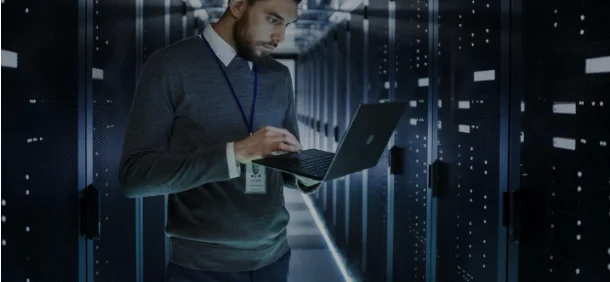How Managed IT Services Help Reduce Phishing Risk for Atlanta Firms
Phishing emails still slip past spam filters every day, and when they reach your inbox they create stress, confusion, and costly downtime. As an Atlanta office manager, you juggle HR questions, copier jams, and dozens of vendor calls-yet a single click on a fake invoice can undo months of hard work. Managed IT support services Atlanta providers exist to shoulder that technical burden so you can keep your team productive and calm. You deserve tools that quietly neutralize these scams so your energy stays on people, not pop-ups.
Read more on this page https://en.wikipedia.org/wiki/Phishing.
Why Phishing Hits Atlanta
Metro Atlanta is a magnet for logistics, fintech, and healthcare companies. Criminals know these sectors hold sensitive payment data and patient information, so they aim their phishing campaigns here. A busy shipping coordinator who races through hundreds of emails a day is more likely to open a bogus tracking notice. At the same time, many midsize firms still rely on basic email filtering provided by their internet service provider, leaving gaps that attackers exploit.
Regional factors matter, too. Atlanta’s thriving startup scene means staff turnover is high; new hires often arrive without security orientation. The city’s summer storms also spark power blips that take local servers offline, prompting employees to use personal devices-exactly where phishing links can lurk unchecked.
Spotting Suspicious Emails
You and your colleagues don’t need to become cybersecurity experts, but you do need a quick mental checklist:
- Check the sender. Hover over the “from” address; if it’s jammed with random characters, pause.
- Look for urgency. Subject lines yelling “Immediate Action Required” aim to short-circuit thoughtful review.
- Inspect links. A URL that spells “paypa1.com” instead of “paypal.com” is a red flag.
- Verify attachments. Unexpected zip files or macros inside Word docs often launch malware.
A Managed IT services team can reinforce these habits by routing questionable messages to a sandbox and sending you real-time alerts. This is a simple example of network monitoring and threat detection that keeps danger at arm’s length. If anything feels off, forward the message to your managed security services provider and wait for guidance instead of guessing.
Email Filtering Best Practices

Your built-in Microsoft 365 or Google Workspace filters catch a lot, but layered protection is stronger. Ask your provider to deploy a cloud gateway that analyzes sender reputation, scans for spoofed domains, and rewrites links so they open in a secure browser. Pair that with data loss prevention rules that block outbound emails containing social-security numbers or customer credit-card data.
An Atlanta, GA Managed IT Company can also integrate filtering with your directory services. When an employee leaves, their mailbox is automatically suspended, closing a loophole phishers love. Finally, insist on daily reports that show which messages were quarantined and why. Transparent metrics help you discuss cybersecurity solutions for small businesses with leadership in plain language.
How Often Should We Train?
Annual slide decks no longer cut it. The threat landscape evolves too fast. Instead, schedule micro-training sessions every quarter. These bite-sized videos and quizzes take less than five minutes and keep security top of mind without draining productivity.
Supplement the lessons with simulated phishing campaigns. Employees receive fake but harmless lures; those who click are redirected to an educational page. Over time, click-through rates drop dramatically, proving the value of ongoing IT compliance services in Georgia. Rotate scenarios: gift-card scams near the holidays, shipping notices during peak e-commerce season, and W-2 requests each January. Link the sessions to real-world headlines. When a regional hospital discloses a breach, send staff a quick explainer that reinforces the lesson. Keep scoreboards visible in the break room so departments can celebrate streaks without clicks.
Incident Response Checklist
Even great defenses can slip. When a phishing email gets through, follow this checklist-adapted from NIST’s (read more here) incident-response guidance-to limit fallout:
- Isolate the device. Unplug from Wi-Fi or Ethernet to stop command-and-control traffic.
- Alert IT immediately. Provide the original message so experts can trace the payload.
- Reset passwords. Change credentials tied to email, VPN, and cloud apps.
- Scan for malware. Run a full endpoint scan to spot hidden executables.
- Notify stakeholders. Inform leadership and, if needed, affected clients about potential exposure.
- Document the event. Record timeline and actions for compliance audits and insurance claims.
- Review lessons learned. Update policies and reinforce data breach prevention strategies at the next staff meeting.
If accounts were used for wire transfers, call the bank’s fraud hotline within 30 minutes; speed can reverse transactions. After the dust settles, schedule a debrief within 48 hours while memories are fresh.
Managed IT partners serve as both shield and coach. They deploy enterprise-grade tools, tailor training to Atlanta’s unique business climate, and stand ready when incidents happen. With the right guidance, you can transform email from a daily risk into a reliable workhorse-and keep your office humming along, confident and secure. And every reduced click means another afternoon your team can devote to serving customers, not scrambling over threats.
